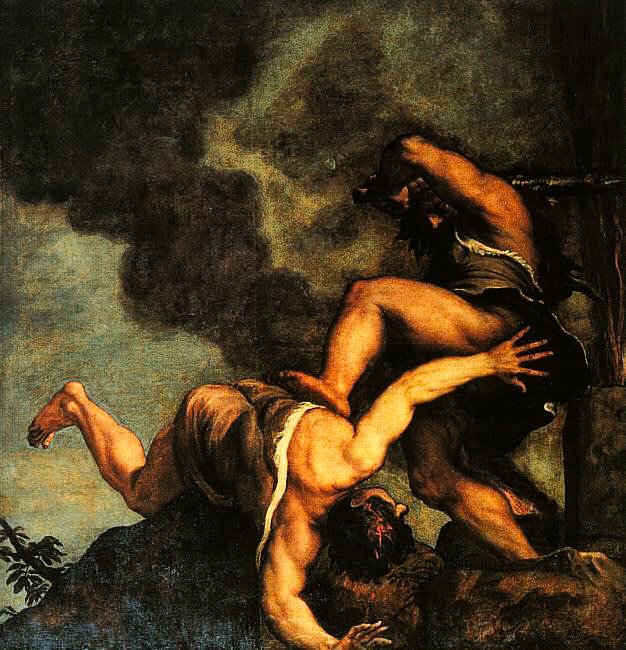“Am I my brother's keeper?" (Gen 4:9): A perverse idea of freedom.
By: Dr. Charles Dern
The title above is taken directly from a section of a Papal letter (an Encyclical) written by the late Pope Saint John Paul II called “The Gospel of Life” (Evangelium Vitae in Latin). In sections eighteen through twenty of that document, the Pope lays out for us a very important correction to what many think is meant by the idea of “freedom.”
To many in Western nations, especially in the United States, ultimate freedom is thought of as the right to do whatever one pleases whenever one pleases. Of course, in practice, most people realize that there needs to be some restrictions on freedom in order for society even to function. For example, most agree that there should not be a “freedom” to steal from another.
"Freedom"
However, Pope John Paul II argues that there is no such thing as a “freedom” to steal from another in the first place. Stealing from someone else is an abuse of freedom. How? Because if we take the Hebrew and Christian Scriptures at their word, God made us free so that we can love. Stop and think for a moment. Love cannot be forced, can it? By its very definition, it has to be a free choice.
Now Jesus tells us that we must love our enemies (Mt. 5:44). But how can we do that? We do that by doing the right thing, the moral thing, at all times and towards all others, even those we may not like. That is, we have a responsibility to use our freedom to choose good at all times. This is what is meant by the mysterious words in John’s Gospel: “The truth shall set you free.” (Jn. 8: 32). In other words, knowing the truth, what is truly good and thus truly loving, frees one from the indecision of what to do in a given situation.
Now we can understand John Paul II’s answer to the big problems in the world today, especially abortion (the killing of the unborn child in the womb) and euthanasia (the killing of an innocent person with the intention to end suffering). The Pope argues that the (false) claim to have the freedom to choose such actions “is a problem which exists at the cultural, social and political level, where it reveals its more sinister and disturbing aspect in the tendency, ever more widely shared, to interpret … crimes against life as legitimate expressions of individual freedom, to be acknowledged and protected as actual rights.” (EV 18)
Good Idea, Bad Movement
The abortion-rights movement seized on this very idea when in the late 1960s or early 1970s it started the ‘pro-choice” argument. “Personally I would not have an abortion but I support the rights of others to choose abortion.” However, if one tries to apply that logic to almost any other subject besides euthanasia it breaks down. “Personally I would not steal from someone but I support the rights of others to choose to steal.”
Why does it break down? Because the “pro-choice” argument completely evades the question of whether or not the action being chosen is moral (or in other words, “the loving”) thing to do in the first place. It contains, to repeat the Pope’s words, “A perverse idea of freedom.” John Paul II says the same thing in fancier language. A pro-choice mindset is a “mentality which carries the concept of subjectivity to an extreme and even distorts it, and recognizes as a subject of rights only the person who enjoys full or at least incipient autonomy and who emerges from a state of total dependence on others.” He continues that such a mindset “lies in a notion of freedom which exalts the isolated individual in an absolute way, and gives no place to solidarity, to openness to others and service of them.” (EV 19)
Stated more simply, as was said in the beginning of this article, many have the very real mindset that they are free almost to do whatever they want, limited only perhaps by the “rights” of others. This mindset can make society into nothing more than a bunch of individuals fighting over rights. It is in this mentality that Cain answers the Lord’s question “Where is Abel your brother?” with “I do not know; am I my brother’s keeper?” (Gen 4:9).
The Gift from God
Yes! Yes, you are! “God gives everyone freedom, a freedom which possesses an inherently relational dimension. This is a great gift of the Creator, placed as it is at the service of the person and of his fulfillment through the gift of self and openness to others….” (EV 19) Notice that Pope John Paul says freedom is inherently “relational,” that is, between two or more persons. What else is inherently relational? Love! Therefore freedom and love are inextricably connected (they cannot be separated from one another).
The Pope finishes the topic of freedom in the Gospel of Life by stating “To claim the right to abortion, infanticide, and euthanasia, and to recognize that right in law, means to attribute to human freedom a perverse and evil significance: that of an absolute power over others and against others. This is the death of true freedom: "Truly, truly, I say to you, everyone who commits sin is a slave to sin" (Jn 8:34).” (EV 20) Only those who do the right thing in love are those who are truly free.




